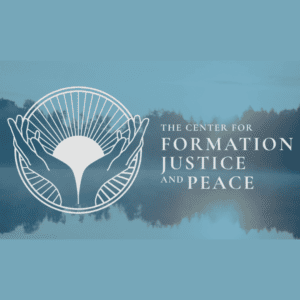“What should we do when we realize that the forms of Christianity we inherited are either insufficient for—or opposed to—the Christian mission to which we are called?”
 Coracle’s partners at the Center for Formation, Justice, and Peace are exploring in depth a central message that churches and individuals alike are currently asking: “How do we become a people of repair?” This is undoubtedly a question that Coracle cares about deeply. So, we are very thankful that our brother and friend, Greg Thompson, has written a series of 5 articles that help us think differently about evangelicalism, formation, and the mission of the American Church. Greg details several shifts that must occur in order for us to enter into this mission of repair work. (You might remember Greg’s Soundings Seminar with Duke Kwon)
Coracle’s partners at the Center for Formation, Justice, and Peace are exploring in depth a central message that churches and individuals alike are currently asking: “How do we become a people of repair?” This is undoubtedly a question that Coracle cares about deeply. So, we are very thankful that our brother and friend, Greg Thompson, has written a series of 5 articles that help us think differently about evangelicalism, formation, and the mission of the American Church. Greg details several shifts that must occur in order for us to enter into this mission of repair work. (You might remember Greg’s Soundings Seminar with Duke Kwon)
First though, what exactly does it mean to be a people of repair? Greg helps unpack this very question: “Lurking behind this question are some of our most fundamental convictions: that the communities we serve are broken by wickedness and sorrow, that the Living God burns against this wickedness and weeps over this sorrow, and that the Church—fragile and entangled though we are—is a community called to step into these broken places and to work toward something like repair.” While there are many individuals and communities entering into and working against this brokenness, we also realize that the American Church has not only failed to work towards healing and repair, “it is, to the contrary, complicit in the destruction.” Something needs to change. Read more here as Greg unpacks how we can participate in God’s repair work by first understanding how and why our inherited forms of our faith must change.
In Greg’s fifth article, he explores another shift – the temptation to abandon Christian formation, character, and mission to a more conceptual worldview. “I began to think, read, and talk less about developing a Christian character or participating in a Christian mission, and more about developing what I believed to be a Christian mind.” No doubt that formation and conceptualization can work together for good, but the sole emphasis on what we believe with our minds can often lead to a disconnect with our hearts. “Simply put, there is a very real sense in which I was becoming more right but less good.” Greg helps us see that in order to become a people of repair, we must not only concern ourselves with what we think about God, but also how we live our lives. We must shift our focus from being right to being good.
There is so much more to learn and discuss around the important work of becoming a people of repair. We hope you’ll take some time to read and reflect on all of these important articles from the CFJP.
